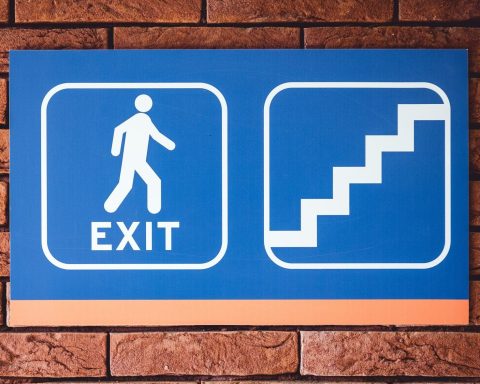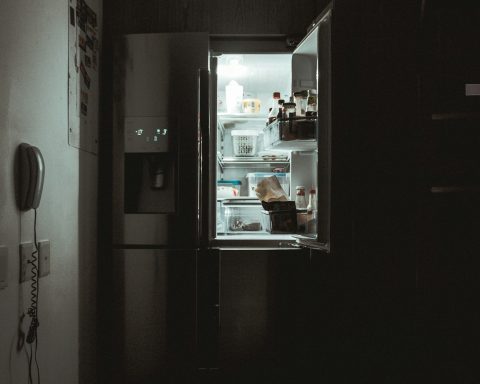 Richard Armitage is a GP and Public Health Specialty Registrar affiliated with the Division of Epidemiology & Public Health at the University of Nottingham. He is on Twitter: @drricharmitage
Richard Armitage is a GP and Public Health Specialty Registrar affiliated with the Division of Epidemiology & Public Health at the University of Nottingham. He is on Twitter: @drricharmitage
While the amount of sleep needed per day varies with an individual’s age, it is generally agreed that 8-10 hours per 24 hours, and 7-9 hours per night, are needed by healthy teens and healthy adults, respectively. Globally, the prevalence of insufficient sleep (interchangeably referred to as sleep loss, sleep disturbance, sleep deprivation, or sleep fragmentation) has been estimated to be as high as 56.0%,1 while a deteriorating trend has been noted during the COVID-19 pandemic.2 Both the acute and chronic health impacts of insufficient sleep are severe and extensive, and translate into physiological damage, psychiatric disturbance, and increased rates of accidents and injuries. Given the scale, severity, and relatively neglected status of this problem, insufficient sleep should be recognised as a public health problem in urgent need of global attention.
Insufficient sleep is recognised as an important risk factor for a wide variety of serious health problems, ranging from an increased risk of road traffic collisions to a significant impairment of immunological function. For example, drivers who had slept for less than 5-6 hours, 4-5 hours or 4 hours in the previous 24 hours had a 1.9, 4.3 and 11.5 times greater rate of road traffic collision, respectively, than drivers who had slept for 7 hours or more in the same period. Drivers who usually sleep for 4-5 hours daily had a 5.4 times greater rate of collision than drivers who usually sleep for 7 hours or more. The relative risk of collision in those driving after only 5-6 hours of sleep compared with 7 hours or more is similar to that associated with a blood alcohol concentration slightly above the U.S. legal limit.3
The relative risk of collision in those driving after only 5-6 hours of sleep compared with 7 hours or more is similar to that associated with a blood alcohol concentration slightly above the U.S. legal limit.
With regard to psychiatric disturbances, insufficient sleep is a key risk factor in the development of cognitive decline and diagnosis of Alzheimer’s disease in middle-aged and older adults, while treating the sleep disorders of patients with Alzheimer’s disease decreases the rate of their cognitive decline4 (insufficient sleep plays a causal role in the pathway linking apolipoprotein E biology, neurofibrillary tangles and Alzheimer’s disease). Meanwhile, sleep disturbance increases the risk of relapse into addictive substance misuse compared with those without any form of sleep disturbance.
Insufficient sleep is highly influential in the development of cardiovascular diseases. This is demonstrable after only a single episode of sleep loss: blood pressure is significantly increased the day after a night of insufficient sleep, while the risk of acute myocardial infarction increases significantly in the two weeks following daylight-saving time transitions in which most people lose an hour of sleeping opportunity.5 The effects of chronic insufficient sleep were revealed in a systematic review of over 470,000 participants, which found that short sleep (regularly sleeping for less than 7 hours per night) was associated with a 48% and 15% greater risk of developing or dying of coronary heart disease or cerebrovascular disease, respectively.6
Insufficient sleep also has profound effects on metabolic disease. Short sleep duration doubled the risk of developing type two diabetes across a 7-year period,7 while insufficient sleep alters the ability of leptin and ghrelin to accurately signal caloric need, thereby generating the misperception of insufficient energy availability, which translates into additional calorie consumption compared to when adequate sleep has been achieved. Accordingly, the likelihood of obesity increases as the number of nightly hours of sleep decreases below 6 (for example, those who sleep for 6 hours per night were 60% more likely to be obese than those who sleep for 7 hours).
…insufficient sleep should be regarded as a serious problem requiring the urgent attention of public health…
Insufficient sleep also has deleterious effects on immunological functioning, fertility in women, and even the rate of tumour growth, reflected in the summary that ‘no facet of the human body is spared the crippling, noxious harm of sleep loss.’
Due to the number of people affected globally, the severity of its impacts, and the relative ease with which it can be prevented or corrected, insufficient sleep should be regarded as a serious problem requiring the urgent attention of public health and primary care practitioners. If a communicable, or even non-communicable, disease or health hazard was found to be responsible for an equivalent burden of human suffering, tremendous resources would be allocated for its immediate mitigation. But insufficient sleep is instead an upstream factor with probabilistic influence on the development of a diverse variety of debilitating diseases. While this makes the cause-effect connection less immediately intuitive, it also represents an unmissable opportunity to efficiently improve, via an indirect route, a wide range of downstream population health problems by focusing resources towards a single-issue target.
References
- A Stickley, M Leinsalu, JE DeVylder, Y Inoue, A Koyanagi. Sleep problems and depression among 237 023 community-dwelling adults in 46 low- and middle-income countries. Scientific Reports 19 August 2019; 12011. DOI: 10.1038/s41598-019-48334-7
- Z Alimoradi, A Broström, HWH Tsang, MD Griffiths, S Haghayegh, et al. Sleep problems during COVID-19 pandemic and its’ association to psychological distress: A systematic review and meta-analysis. EClinicalMedicine 01 June 2021; 36(100916). DOI: 10.1016/j.eclinm.2021.100916
- BC Tefft. Acute Sleep Deprivation and Risk of Motor Vehicle Crash Involvement. AAA Foundation for Traffic Safety December 2016 https://aaafoundation.org/wp-content/uploads/2017/12/AcuteSleepDeprivationCrashRisk.pdf (accessed 09 December 2021)
- S Ancoli-Israel, BW Palmer, JR Cooke, J Corey-Bloom, L Fioentini, L Natarajan, et al. Cognitive Effects of Treating Obstructive Sleep Apnea in Alzheimer’s Disease: A Randomized Controlled Study. Journal of the American Geriatrics Society 01 November 2008; 56(11): 2076-2081
- R Manfredini, F Fabbian, R Cappadona, A de Giorgi, F Bravi, T Carradori, et al. Daylight saving time and acute myocardial infarction: a meta-analysis. Journal of Clinical Medicine 23 March 2019; 8(3): 404. DOI: 10.3390/jcm8030404
- FP Cappuccio, D Cooper, L D’Elia, P Strazzullo, MA Miller. Sleep duration predicts cardiovascular outcomes: a systematic review and meta-analysis of prospective studies. European Heart Journal June 2011; 32(12): 1484-1492. DOI: 10.1093/eurheartj/ehr007
- HK Yaggi, AB Araujo, JB McKinlay. Sleep Duration as a Risk Factor for the Development of Type 2 Diabetes. Diabetes Care March 2006; 29(3): 657-661. DOI: 10.2337/diacare.29.03.06.dc05-0879






